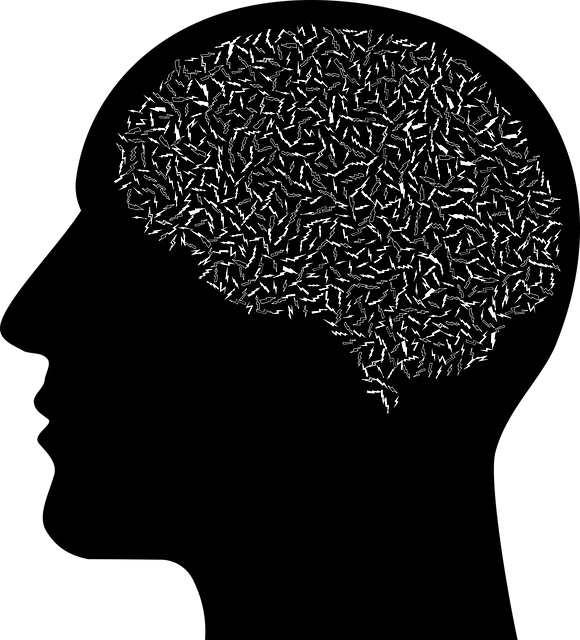Northglenn Kaiser Permanente offers comprehensive Northglenn Kaiser Permanente mental health coverage that prioritizes cultural sensitivity, addressing diverse patient backgrounds and beliefs. Their services include individual therapy, group counseling, evidence-based mood management, and a podcast series to reduce stigma. By integrating continuous learning, active listening, and tailored support, they provide crisis intervention guidance specific to various communities and promote traditional self-care practices for holistic healing in a nurturing environment.
Cultural sensitivity is an essential aspect of providing effective mental healthcare, especially within diverse communities. This article explores the significance of cultural competency in mental health practice, with a specific focus on Northglenn Kaiser Permanente’s (KP) services and their impact. We’ll discuss the challenges faced by healthcare providers when offering culturally sensitive care and present strategies to enhance cultural sensitivity in mental healthcare settings. Understanding these aspects is crucial for improving patient outcomes and ensuring equitable access to mental health services.
- Understanding Cultural Sensitivity in Mental Healthcare
- Northglenn Kaiser Permanente Mental Health Coverage: An Overview
- Challenges and Barriers to Providing Culturally Sensitive Care
- Strategies for Incorporating Cultural Sensitivity in Practice
Understanding Cultural Sensitivity in Mental Healthcare

Cultural sensitivity is a cornerstone in the provision of effective mental healthcare services, ensuring that care is tailored to meet the unique needs and beliefs of diverse patient populations. It involves recognizing and appreciating the impact of cultural factors on mental health experiences and treatments. In Northglenn, Kaiser Permanente’s comprehensive mental health coverage underscores its commitment to delivering culturally sensitive care, where practitioners adapt their approaches to respect and understand patients’ backgrounds, traditions, and personal narratives.
This holistic perspective goes beyond language translation services. It includes embracing practices like incorporating cultural coping skills development and promoting Mind Over Matter principles as part of therapy sessions. By fostering a safe space for open dialogue about cultural beliefs and values, healthcare providers can assist individuals in managing their moods more effectively, addressing specific challenges related to their backgrounds, and ultimately enhancing treatment outcomes.
Northglenn Kaiser Permanente Mental Health Coverage: An Overview

In Northglenn, Kaiser Permanente offers a comprehensive mental health coverage designed to address a wide range of psychological and emotional well-being needs. Their services include individual therapy, group counseling, and medication management, tailored to meet the unique cultural backgrounds and preferences of their diverse patient population. Recognizing the impact of cultural sensitivity in mental healthcare, Kaiser Permanente has implemented various programs aimed at mental illness stigma reduction efforts. These initiatives ensure that patients from all walks of life feel accepted and supported when seeking help for their mental health concerns.
The Northglenn Kaiser Permanente mental health team comprises culturally competent professionals who are dedicated to providing effective mood management strategies. They employ evidence-based practices alongside traditional therapeutic approaches, acknowledging the importance of holistic care in promoting mental wellness. In addition, the organization supports this mission through the production of a mental wellness podcast series, offering accessible resources and relatable content for those seeking guidance on navigating mental health challenges.
Challenges and Barriers to Providing Culturally Sensitive Care

Providing culturally sensitive care is a complex task within mental healthcare, particularly in diverse regions like Northglenn, where Kaiser Permanente offers comprehensive mental health coverage. One of the primary challenges lies in understanding and respecting varied cultural beliefs and practices surrounding mental illness. Many communities have unique perspectives on emotional well-being promotion techniques and depression prevention methods that differ significantly from mainstream Western approaches. Mental health professionals must be vigilant to avoid imposing their own cultural biases and instead foster an environment where patients feel comfortable expressing their views.
Language barriers, socioeconomic factors, and historical trauma are additional obstacles. Different languages may limit communication, impacting the accuracy of diagnosis and treatment plans. Socioeconomic disparities can affect access to mental healthcare services, with certain communities facing financial hurdles to receive necessary care. Historical traumas, such as systemic racism or cultural oppression, can create a sense of distrust towards mental health systems, making it crucial for practitioners to be sensitive to these issues. Integrating emotional well-being promotion techniques that are culturally relevant and addressing mental health awareness is essential in overcoming these barriers.
Strategies for Incorporating Cultural Sensitivity in Practice

Incorporating cultural sensitivity into mental healthcare practice is a multifaceted approach that requires ongoing education and introspection. At Northglenn Kaiser Permanente, dedicated efforts are made to ensure that diverse communities receive care tailored to their unique needs. This involves actively listening to and understanding the individual’s cultural background, values, and beliefs. Mental health professionals can achieve this by asking open-ended questions during intake, encouraging patients to share stories and experiences related to their culture.
Additionally, providing resources and training on cultural competency is essential. Crisis intervention guidance tailored for different communities can be invaluable, ensuring that responses are sensitive and effective. Encouraging patients to develop a self-care routine that incorporates traditional practices from their culture can also promote healing and well-being. The Northglenn Kaiser Permanente mental health coverage is designed with these principles in mind, aiming to foster an inclusive environment where everyone feels supported and respected.
Cultural sensitivity is a cornerstone of effective mental healthcare, especially within diverse communities like Northglenn Kaiser Permanente’s service area. By understanding and incorporating strategies to address cultural differences, mental health practitioners can significantly improve patient outcomes and satisfaction. Overcoming challenges and barriers requires ongoing education, adaptive communication, and tailored treatment approaches. Adopting these practices ensures that the Northglenn Kaiser Permanente mental health coverage lives up to its name by providing inclusive, culturally sensitive care to all.






